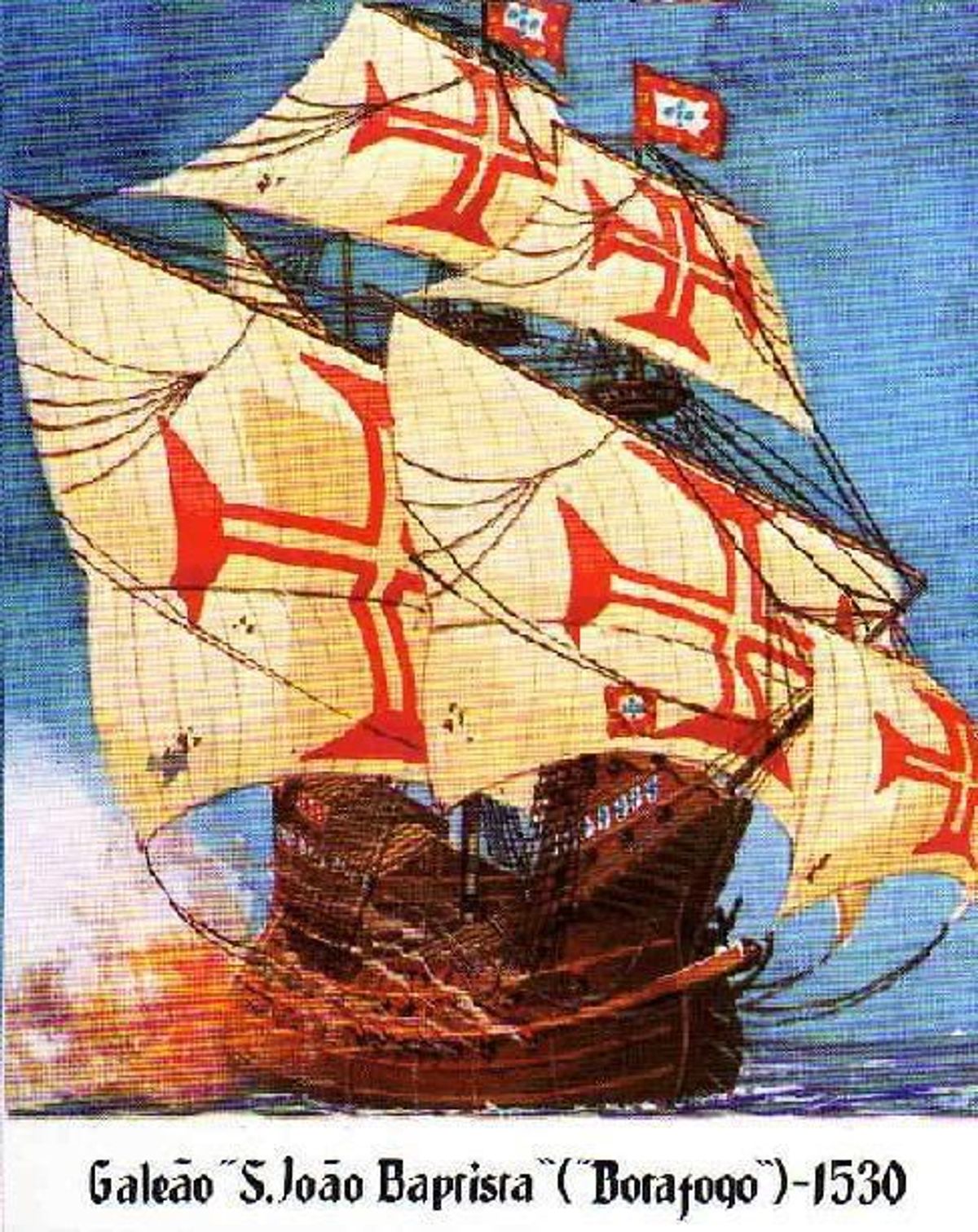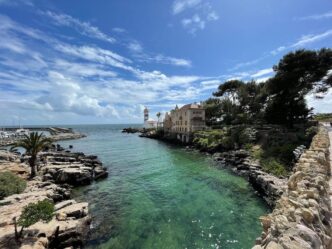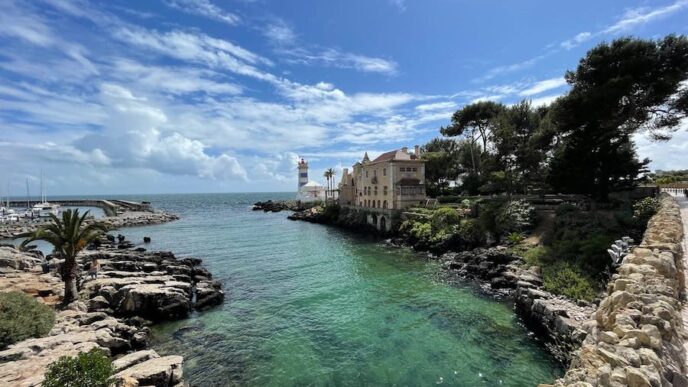The Age of Discovery, led by Portugal, was a transformative era that reshaped global trade, geopolitics, and cultural exchanges from the 15th to the 17th century. This period marked the beginning of European overseas exploration, with Portugal at the forefront of maritime advancements and the establishment of the first global empire. The pioneering spirit of Portuguese explorers, driven by the quest for new trade routes and the spread of European influence, initiated a wave of discovery that would have lasting effects on the world.
Key Takeaways
- Portugal’s Age of Discovery was initiated by Prince Henry the Navigator, who founded a school for navigation that catalyzed maritime exploration and led to the establishment of a global trade network.
- The Treaty of Tordesillas exemplified Portugal’s strategic diplomatic efforts to secure its overseas interests, dividing the New World with Spain and influencing the geopolitical landscape of the time.
- Despite its decline, Portugal’s influence persists through its cultural impact and the enduring legacy of its colonies, particularly in Africa and Brazil, shaping their histories and identities.
The Pioneers of Maritime Exploration

The Monarch Behind the Age of Discovery
The inception of the Age of Discovery is credited to the vision and patronage of Prince Henry the Navigator. His establishment of a school for navigation at Sagres heralded the beginning of Portugal’s maritime supremacy.
- Prince Henry’s foresight in maritime advancement
- The establishment of the Sagres school
- The ushering in of an era of exploration
Portugal’s strategic position on the Atlantic coast and Prince Henry’s passion for exploration positioned the nation at the forefront of maritime discovery. The voyages sponsored under his guidance led to the mapping of unknown territories and the opening of new sea routes.
Portugal’s ascendancy in global exploration set the stage for an unprecedented era of wealth and cultural exchange.
The School for Navigation and the Dawn of New Voyages
Under the auspices of Prince Henry the Navigator, Portugal embarked on an era of unprecedented maritime exploration. The establishment of a navigation school in Sagres revolutionized seafaring techniques, fostering advancements in cartography, shipbuilding, and navigational instruments. The astrolabe, an instrument for stellar navigation, and the caravel, a highly maneuverable sailing ship, were among the innovations that propelled Portuguese sailors into uncharted waters.
The voyages that followed were marked by a series of groundbreaking expeditions. Vasco da Gama’s journey around the Cape of Good Hope to India in 1498 shattered the Venetian monopoly on the spice trade, establishing a direct sea route that would enrich the Portuguese crown for decades. This period also saw the rise of the Atlantic slave trade, with Portugal at its forefront, initiating a dark chapter in human history.
The opening of oceanic routes bypassed traditional land corridors, reshaping global trade and power dynamics. The Age of Discovery was not merely about the accumulation of wealth or territorial expansion; it was a transformative epoch that redefined the world’s geography and the very notion of possibility.
The navigational achievements of this era are a testament to human curiosity and the relentless pursuit of knowledge. They laid the groundwork for a globalized world, long before the term was ever conceived. As we Explore Portugal’s Vinho Verde and its rich maritime heritage, we honor the legacy of those who dared to venture beyond the horizon.
Portugal’s Global Trade Dominance in Spices and Slaves
Portugal’s spice trade reached its zenith at the dawn of the 17th century, with Vasco da Gama’s opening of the oceanic route around Africa in 1497-1498. This pivotal moment in history not only completed the exploratory efforts initiated by Henry the Navigator but also established a direct line for the lucrative spice trade into Europe.
The Portuguese Empire, enriched by the spice trade, exerted its influence over vast territories. However, the Iberian Union period (1580-1640) saw Portugal’s power wane as it faced new adversaries and lost control of key overseas possessions.
The diversion of wealth to support the Catholic side of the Thirty Years’ War and the increasing raids by privateers signaled the beginning of a decline for Portugal’s trade monopoly.
The competition from Dutch, English, and French traders, who established their own posts and undercut Portuguese dominance, led to a gradual erosion of Portugal’s trade monopoly in spices.
The Treaty of Tordesillas: Dividing the New World
The Treaty of Tordesillas, signed in 1494, was a pivotal moment in world history, marking the division of the New World between Spain and Portugal. This agreement, facilitated by the papacy, aimed to resolve the territorial disputes following the voyages of Christopher Columbus and other explorers. The treaty effectively drew an imaginary line in the Atlantic Ocean, granting Spain the rights to all lands west of the line, while Portugal was given dominion over the lands to the east.
The consequences of the treaty were profound, shaping the geopolitical landscape of the Americas. Spain’s focus shifted towards the colonization of vast territories in the Caribbean, Central America, and South America. In contrast, Portugal’s maritime endeavors led them to the coast of Africa and eventually to India, establishing a direct route to the lucrative spice trade.
The Treaty of Tordesillas set the stage for centuries of European colonization, fundamentally altering the economies, cultures, and ecosystems of the Old and New Worlds.
The delineation of spheres of influence also had significant implications for the indigenous populations, as European powers brought with them diseases, weapons, and foreign goods, leading to widespread decimation and the imposition of European control.
Portugal’s Lasting Influence and Decline

The Shift from Exploration to Colonisation
As the Age of Exploration gave way to the era of colonization, Portugal’s role on the global stage shifted from pioneering maritime routes to establishing overseas territories. The transition was marked by a strategic pivot from seeking new trade routes to asserting control over lands and resources discovered during earlier voyages.
Portugal’s colonization efforts were characterized by the establishment of permanent settlements, the imposition of European culture, and the exploitation of local populations and resources. This period saw the rise of the Portuguese empire, with its influence extending across Africa, Asia, and South America.
The shift from exploration to colonization signified a profound change in global dynamics, with European powers vying for territorial dominance and the consequences of these actions resonating through history.
The following table summarizes key aspects of Portugal’s colonization efforts:
| Region | Focus of Colonization | Notable Outcomes |
|---|---|---|
| Africa | Trade posts, resource extraction | Establishment of trade routes, cultural assimilation |
| Asia | Spice trade, strategic ports | Control of lucrative spice routes, spread of Christianity |
| South America | Sugar plantations, gold mining | Introduction of African slave labor, cultural exchange |
Competition and Conflict: The Decline of Portuguese Trade Monopoly
The 17th century marked a turning point for Portugal’s trade dominance. Dutch, English, and French privateers increasingly targeted Portuguese merchant shipping, disrupting the once unchallenged spice trade routes. The establishment of foreign trading posts in Africa, Asia, and the Americas further eroded Portugal’s monopoly, precipitating a decline in the lucrative spice trade.
During the Iberian Union, Portugal’s wealth was diverted to support the Catholic side of the Thirty Years’ War, straining the empire’s resources. Despite the shared control of global territories with Spain, Portugal’s influence waned, making new enemies. The Dutch, in particular, became a formidable adversary, seizing many Portuguese overseas possessions, including Luanda.
The erosion of Portugal’s trade monopoly was not merely the result of military confrontations but also stemmed from strategic missteps and shifting global alliances.
The loss of hegemony over trade routes and the subsequent invasions by the Dutch marked the beginning of Portugal’s decline as a global trade power. This period of decline was characterized by the loss of territories and the diminishing control over international trade.
The Enduring Legacy of Portuguese Colonies in Africa and Brazil
The Portuguese Empire’s influence in Africa and Brazil is a testament to its enduring legacy. The colonization of Brazil began in the early 16th century, marking a significant expansion of Portuguese territorial control. In Africa, Portuguese influence persisted well into the 20th century, with the retention of colonies until the mid-1970s.
Portugal’s colonial endeavors led to a complex relationship with its territories, particularly with Brazil, which became a hub for the transatlantic slave trade. The 17th century saw the transportation of African slaves to Brazil, entrenching the economic and social structures that would persist for centuries.
The interdependency between Portugal and its colonies shaped the course of their histories, with the colonies often exerting influence back on the motherland.
The dissolution of the Iberian Union in 1640 allowed Portugal to reassert control over its African possessions, such as Saint George del Mina, Saint Thomas, and Luanda. This period also witnessed the challenges posed by the Dutch, who captured significant portions of the Brazilian coast, including Bahia and Pernambuco.
The Cultural and Geopolitical Impact of Portuguese Exploration
The Age of Discovery, spearheaded by Portugal, irrevocably altered the cultural and geopolitical landscape of the world. The establishment of new trade routes and colonies not only spread European influence but also reshaped global interactions and power dynamics.
- The diffusion of Portuguese language and customs across continents.
- Introduction of new crops and culinary traditions to and from the New World.
- The spread of Christianity as a dominant religion in newly explored territories.
- The establishment of a precedent for European maritime empires and subsequent colonialism.
The Portuguese navigational advancements and maritime exploration set the stage for a new era of global connectivity and cultural exchange.
The legacy of Portuguese exploration is evident in the linguistic and cultural imprints left on various continents, particularly in Africa and Brazil. The geopolitical shifts initiated during this period continue to influence international relations and trade patterns to this day.
Conclusion
The Age of Discovery, initiated by Portugal’s visionary monarchs, notably Prince Henry the Navigator, set the stage for a transformative era in global history. Portugal’s pioneering maritime exploration in the 15th century, driven by the quest for lucrative trade routes and commodities like spices, not only established the first global empire but also reshaped geopolitics and trade for centuries to come. The Treaty of Tordesillas, which divided the world between Portugal and Spain, and the subsequent colonization efforts, particularly in Brazil and Africa, underscore the profound impact of Portuguese endeavors. Had Portugal not embarked on this path, another European power might have filled the void, potentially altering the course of history. The legacy of the Portuguese Age of Discovery is a testament to human curiosity, ambition, and the enduring consequences of exploration.
Frequently Asked Questions
Who initiated the Age of Exploration by sponsoring numerous voyages from Portugal?
The Age of Exploration was initiated by Prince Henry the Navigator, who sponsored numerous voyages from Portugal, leading to significant maritime discoveries.
What commodity did Portugal primarily trade during its Golden Age of exploration?
During its Golden Age of exploration, Portugal primarily traded in spices and also engaged in the slave trade, which became integral parts of their global trade dominance.
Which treaty in the late-15th Century divided newly discovered lands outside Europe between Spain and Portugal?
The Treaty of Tordesillas, signed in 1494, divided newly discovered lands outside Europe between Portugal and Spain, establishing spheres of influence for the two emerging colonial powers.













